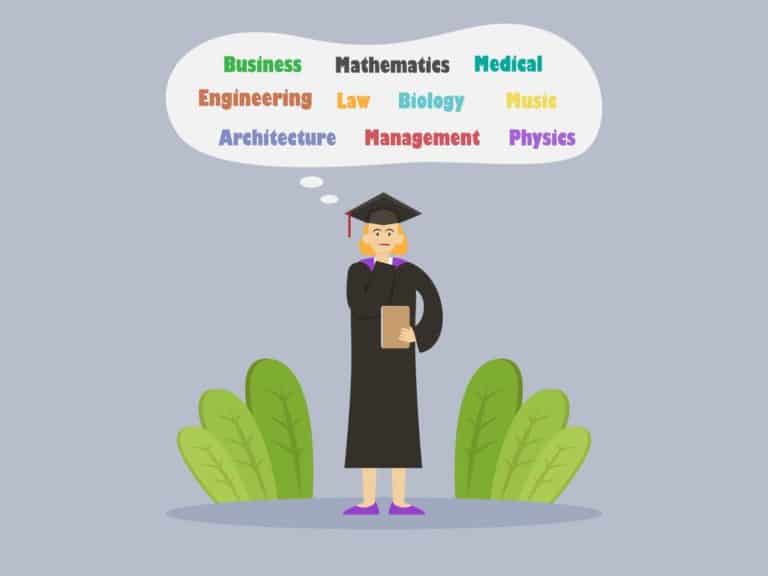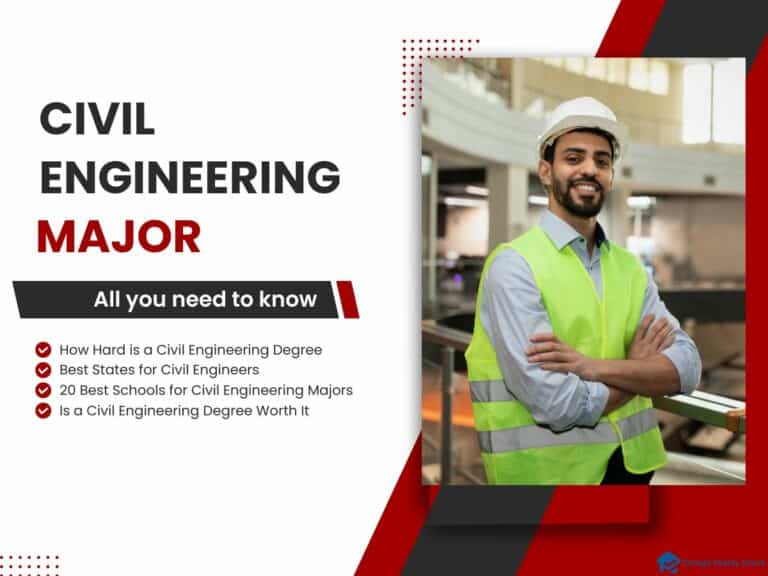Is Aerospace Engineering a Good Major?
Want to design airplanes or rockets that fly faster and quieter and look more awesome? Then aerospace engineering is something that you should include in your list of college majors.
Aerospace engineering is a good major in that it offers some of the most high-paying job opportunities after graduation. However, it is one of the most challenging of all various engineering majors, just like many others in the STEM field, which is why working hard to earn a bachelor’s is important.
Many college-bound high schoolers who are considering majoring in aerospace engineering feel too embarrassed to ask one very pressing question: is aerospace engineering hard in college?
The short answer is yes. As a matter of fact, aerospace engineering is one of the hardest engineering majors, together with electrical engineering and chemical engineering.
But if becoming an aerospace engineer one day is your dream, there is no need to worry, especially if you are willing to study well and stay committed to the program.
Read on to know some important matters all aspiring aerospace engineer majors need to be aware of.
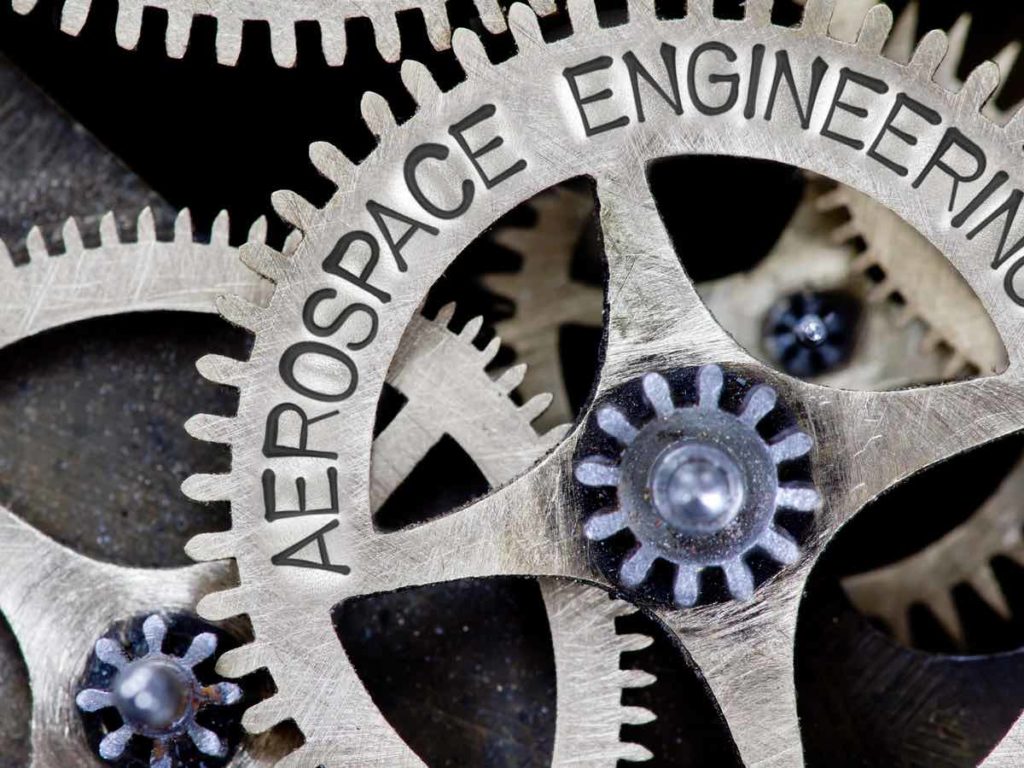
Aerospace Engineering vs. Aeronautical Engineering: What’s the Difference?
Aerospace engineering is a broader field than aeronautical engineering. As a matter of fact, aeronautical engineering is a branch of it. Aerospace engineering is about aircraft that operate in and outside the Earth’s atmosphere. Aeronautical engineering is about aircraft that operate within the Earth’s atmosphere.
It’s true that aerospace engineering and aeronautical engineering share one thing in common. And it’s none other than both of them are about the design, construction and maintenance of aircraft.
However, the type of aircraft involved is what separates the two.
Just like what’s mentioned earlier, compared to aeronautical engineering, aerospace engineering is a broader field. That’s because it’s all about aircraft capable of operating not only within the Earth’s atmosphere but also outside of it.
So, in other words, aeronautical engineers construct anything from helicopters, airplanes, rockets to space stations.
Meanwhile, aeronautical engineering, which is also sometimes referred to as aeronautics, is a field that concerns itself only with aircraft that can operate within the Earth’s atmosphere.
So, in other words, aeronautical engineering is a specialization within aerospace engineering.
What Can You Do with Aerospace Engineering Degree
The vast majority of jobs available for aerospace engineering graduates have an employment growth rate within the decade that’s higher than average for all occupations (8%). Many different high-profile companies in the country are constantly on the hunt for bachelor’s in aerospace engineering holders.
According to experts, for every two available STEM jobs, only one candidate is qualified. STEM jobs may be hard to fill, but there are tons of them available for the right people.
Since aerospace engineering is in the STEM field, plenty of job opportunities are waiting for you after graduation!
The following are just some of the top recruiters of aerospace engineering majors in the US:
- Blue Origin
- Boeing
- Collins Aerospace
- Dynetics
- Federal Aviation Administration (FAA)
- Gulfstream
- Honeywell
- Lockheed Martin
- National Aeronautics and Space Administration (NASA)
- Naval Air Warfare Center (NAWC)
- Northrop Grumman
- Pratt & Whitney
- Raytheon Technologies
- Sierra Nevada Corporation (SNC)
- SpaceX
- Spirit AeroSystems
- United Launch Alliance (ULA)
Now that you have an idea of which companies you should send copies of your resume to after graduation, it’s time for us to talk about some of the career options available for aerospace engineering majors:
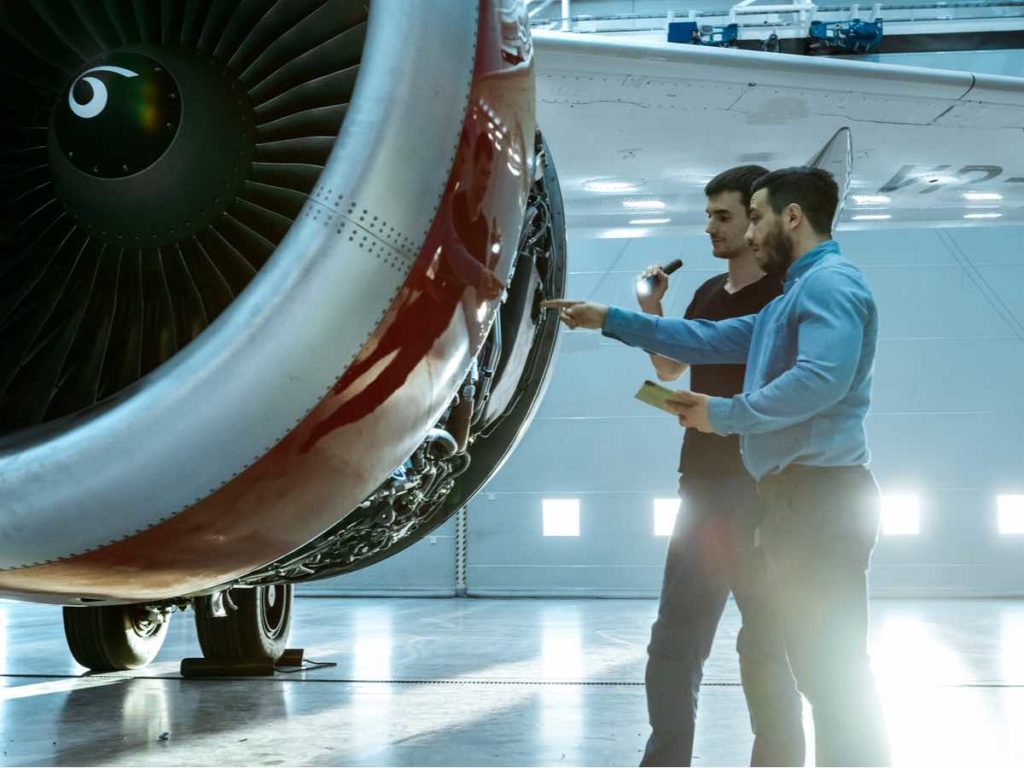
Aerospace engineer
- Median annual salary: $122,270
- Job outlook in 10 years: 8%
Out of the more than 61,000 employed aerospace engineers in the US, over 30% are working in the aerospace product and parts manufacturing industry. Because designing modern aircraft and spacecraft involves the use of state-of-the-art computers and software programs, most aerospace engineers work in office settings.
Materials engineer
- Median annual salary: $98,300
- Job outlook in 10 years: 8%
Coming up with lightweight and high-strength materials for applications in aerospace and various other industries — such is the task of materials engineers. While there is such a thing as a materials engineering degree, majoring in a related engineering field also makes individuals qualified to work as materials engineers in their respective fields.
Industrial engineer
- Median annual salary: $95,300
- Job outlook in 10 years: 14%
Simply put, industrial engineers are the ones who design systems that can make it more efficient to integrate employees, machines, materials, pieces of information and others. Industrial engineers are usually found in offices when coming up with systems or solving problems, although they also travel when making observations or implementing solutions.
Technical sales engineer
- Median annual salary: $103,710
- Job outlook in 10 years: 8%
Aerospace engineering majors working as technical sales engineers are responsible for selling scientific and technological products, ranging from engineering equipment to aircraft parts, to businesses, companies and organizations. Superb communication, negotiating, relationship-building and product knowledge skills are must-haves.
Data analyst
- Median annual salary: $82,360
- Job outlook in 10 years: 25%
When it comes to upgrading and improving aircraft and spacecraft performance and reliability, data analytics is very critical. This is why data analysts can prove to be some of the most important individuals in the industry. Besides an in-depth understanding of statistical analysis, data analysts also need to have strong data visualization skills.
Aircraft and avionics technician
- Median annual salary: $65,550
- Job outlook in 10 years: 11%
A bachelor’s in aerospace engineering or a related field is not really a requirement for aircraft and avionics technicians, who are tasked with repairing and performing scheduled maintenance on aircraft. Some of them obtain knowledge and skills from Federal Aviation Administration (FAA)-approved aviation maintenance technician schools.
Aviation safety and compliance officer
- Median annual salary: $71,100
- Job outlook in 10 years: 6%
What aviation safety and compliance officers do is conduct inspections in order to make sure that safety system compliance and standardization policies are met. They are also tasked with developing safety and compliance programs as well as providing management pieces of advice or recommendations on possible risks and dangers.

CAD technician
- Median annual salary: $60,290 per year
- Job outlook in 10 years: -2%
As the job title suggests, computer-aided design (CAD) technicians use a special software program when creating technical drawings and plans for parts and products used in aerospace engineering and other engineering branches as well as industries. Besides a bachelor’s degree, CAD technicians are usually required to obtain CAD certification.
Best Schools for Aerospace Engineering
Fortunately for students from low-income backgrounds who are dreaming of becoming aerospace engineers one day, there are many public and state universities with aerospace engineering programs, which means lower cost of attendance (COA). This is most especially true for in-state students.
To speed up the process of building a college list, I checked out which US colleges and universities have some of the most competitive bachelor’s degrees in aerospace engineering.
Here are the best of the bunch, together with some helpful pieces of information:
| INSTITUTION | ACCEPTANCE RATE | ESTIMATED COA |
| Massachusetts Institute of Technology | 7% | $72,462 |
| Georgia Institute of Technology | 21% | $29,802 (in-state) and $50,914 (out-of-state) |
| California Institute of Technology | 7% | $77,718 |
| Purdue University | 67% | $22,782 (in-state) and $41,584 (out-of-state) |
| Embry-Riddle Aeronautical University | 61% | $56,596 |
| University of Illinois – Urbana-Champaign | 63% | $31,102 (in-state) and $48,552 (out-of-state) |
| University of Michigan – Ann Arbor | 26% | $31,484 (in-state) and $67,802 (out-of-state) |
| Stanford University | 5% | $78,218 |
| University of Texas at Austin | 32% | $28,928 (in-state) and $57,512 (out-of-state) |
| Texas A&M University | 63% | $31,467 (in-state) and $58,024 (out-of-state) |
| University of Colorado Boulder | 84% | $31,442 (in-state) and $57,260 (out-of-state) |
| University of Maryland | 51% | $27,807 (in-state) and $53,919 (out-of-state) |
| Virginia Tech | 66% | $27,755 (in-state) and $46,295 (out-of-state) |
| University of California – Berkeley | 18% | $41,528 (in-state) and $71,282 (out-of-state) |
| Cornell University | 11% | $78,992 |
| Princeton University | 6% | $68,044 |
| Pennsylvania State University | 54% | $36,962 (in-state) and $54,026 (out-of-state) |
| University of California – Los Angeles | 14% | $36,787 (in-state) and $66,541 (out-of-state) |
| Ohio State University | 69% | $28,664 (in-state) and $50,648 (out-of-state) |
| Rensselaer Polytechnic Institute | 57% | $75,824 |
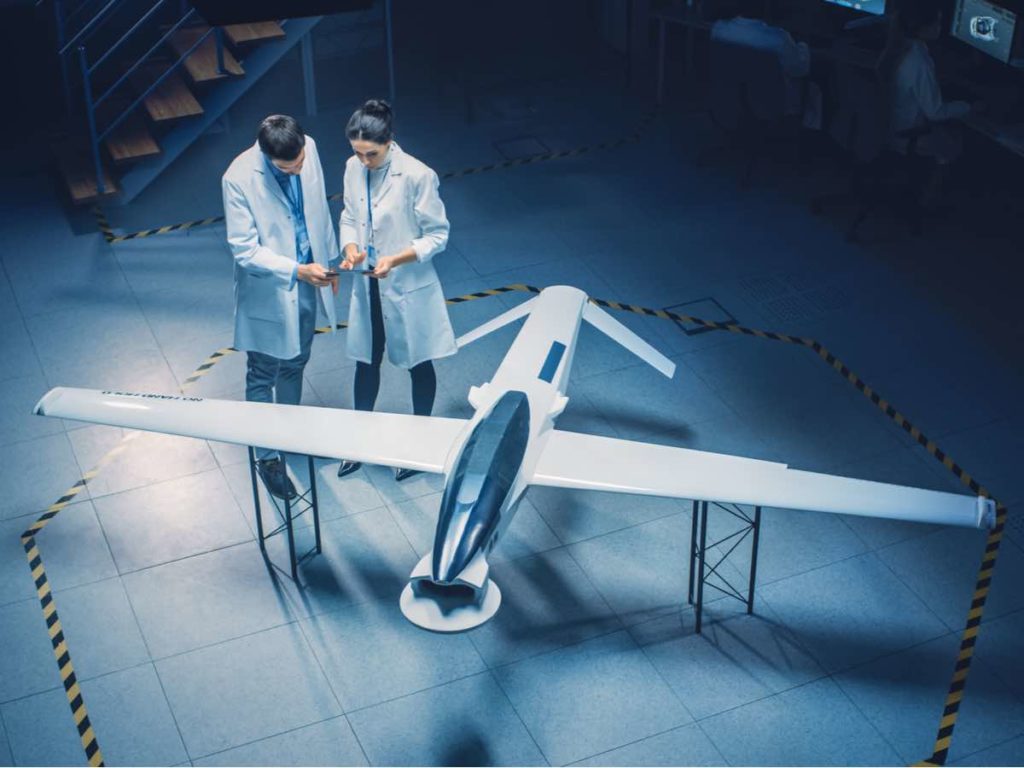
Best Online Schools for Aerospace Engineering
Besides traditional degrees in aerospace engineering, there are also online ones available, which are suited for non-traditional students with jobs or who are busy looking after their kids.
The following are some accredited online schools where you can major in aerospace engineering:
Eastern New Mexico University
- Location: Portales, New Mexico
- Cost: $289.00 (in-state) and $374.00 (out-of-state) per credit hour
- Acceptance rate: 51%
- Accreditor: Higher Learning Commission (HLC)
Florida Institute of Technology
- Location: Melbourne, Florida
- Cost: $777.00 per credit hour
- Acceptance rate: 70%
- Accreditor: Southern Association of Colleges and Schools Commission on Colleges (SACSCOC)
Liberty University
- Location: Lynchburg, Virginia
- Cost: $390.00 per credit hour
- Acceptance rate: 100%
- Accreditor: Southern Association of Colleges and Schools Commission on Colleges (SACSCOC)
Just Before You Enroll in an Aerospace Engineering Program
Majoring in aerospace engineering is not the easiest way to earn a college degree. Besides being a part of the difficult STEM field, it’s also one of the hardest of all engineering majors. However, deciding to declare aerospace engineering as a major can easily be one of the smartest decisions of a degree-seeking student who is passionate about the field.
Related Questions
Can aerospace engineer majors become astronauts?
Earning a bachelor’s degree in aerospace engineering can pave the way for a path to a career as an astronaut. However, it’s important to note that NASA’s selection process can be competitive. For instance, in 2016, less than 1% of all applicants got accepted, according to NASA itself.
Are aerospace engineers happy with their careers?
CareerExplorer says that surveyed aerospace engineers agree that they have above-average happiness in terms of jobs and salaries. As a matter of fact, they give their career happiness level a rating of 3.4 out of a total of five stars, which places them in the top 34% of all careers surveyed.
Read Next: Is Civil Engineering Major Good?
Disclaimer: The views and opinions expressed in this article are those of the authors and do not necessarily represent those of the College Reality Check.


